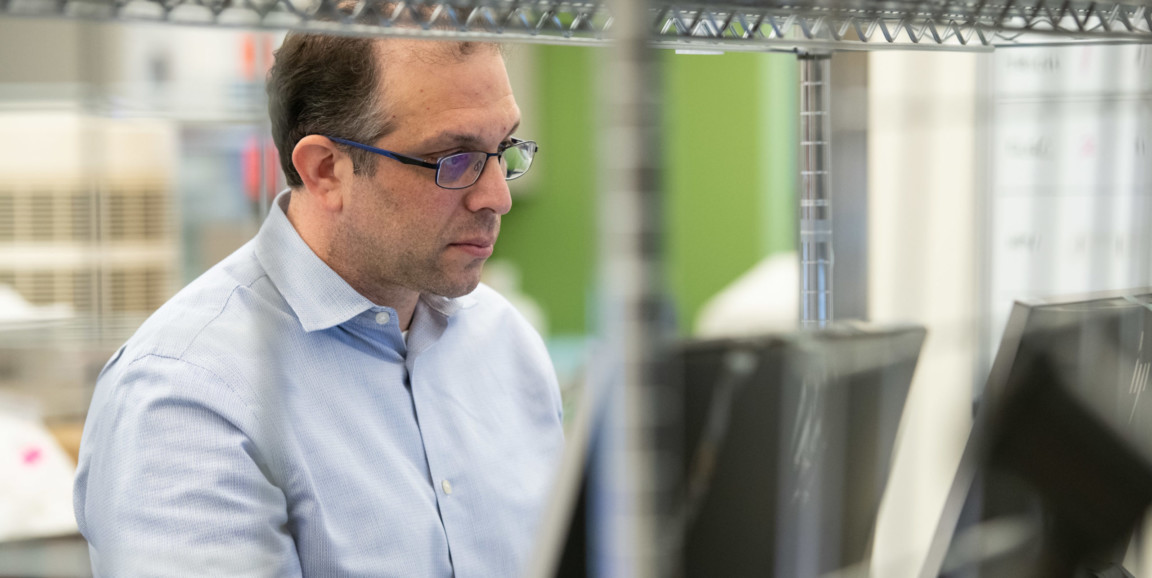Earlier this month, Stanford pathologist Benjamin Pinsky, MD, PhD, and his colleagues in the Stanford Clinical Virology Laboratory deployed a rapid test for coronavirus. Now they're working to provide testing for hospitals throughout the Bay Area.
By rapidly identifying infected people, the test could help limit the spread of the SARS-CoV-2 virus, which can cause mild to severe or even fatal respiratory symptoms.
The test, which delivers results within several days, was initially deployed to diagnose patients at Stanford hospitals suspected of having the virus. As Krista Conger reported this week, Pinsky's lab is scaling up capacity for its coronavirus test as fast as possible and hopes to soon be able to process more than 1,000 tests per day.
"We're really trying to ramp up to support testing in the Bay Area and help out our public health colleagues to keep up with demand for testing," said Pinsky, who is shown in the photo above.
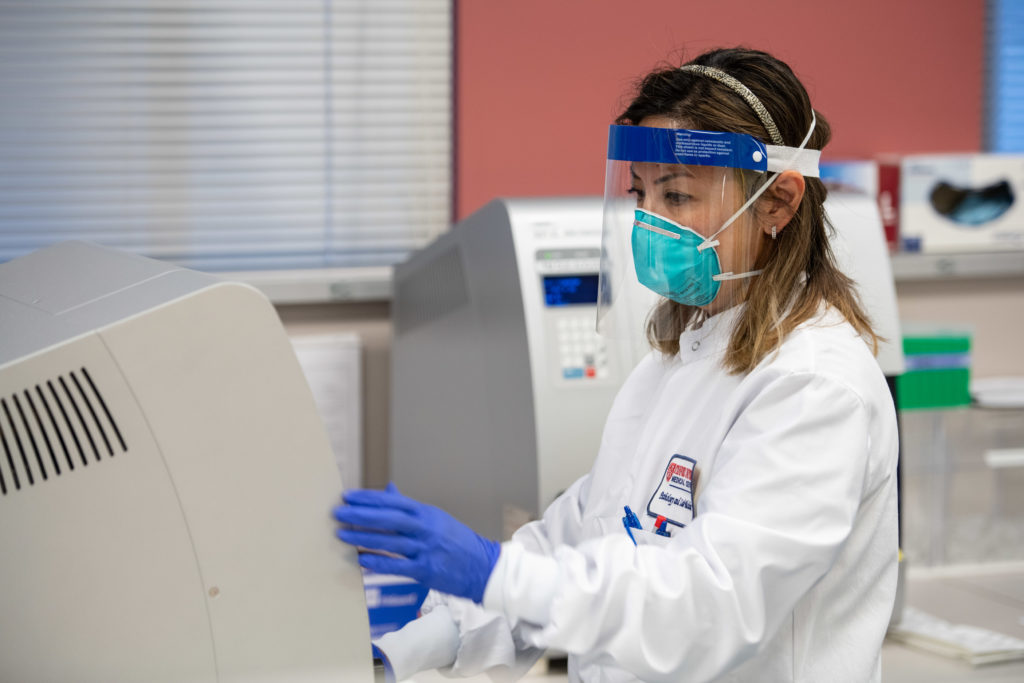
Other Stanford labs have jumped in to help, providing equipment and staff. Stanford is also producing some of the test components in short supply, such as the primers and probes used to amplify viral genetic material in patient samples.
"The coordinated response by researchers and administrators throughout the hospital and across the university to help us increase capacity and reduce our reliance on outside suppliers has been remarkable," said Pinsky, associate professor of pathology and of infectious diseases.
More testing is needed to identify people infected with the coronavirus and their close contacts who may be infected but are not yet experiencing symptoms.
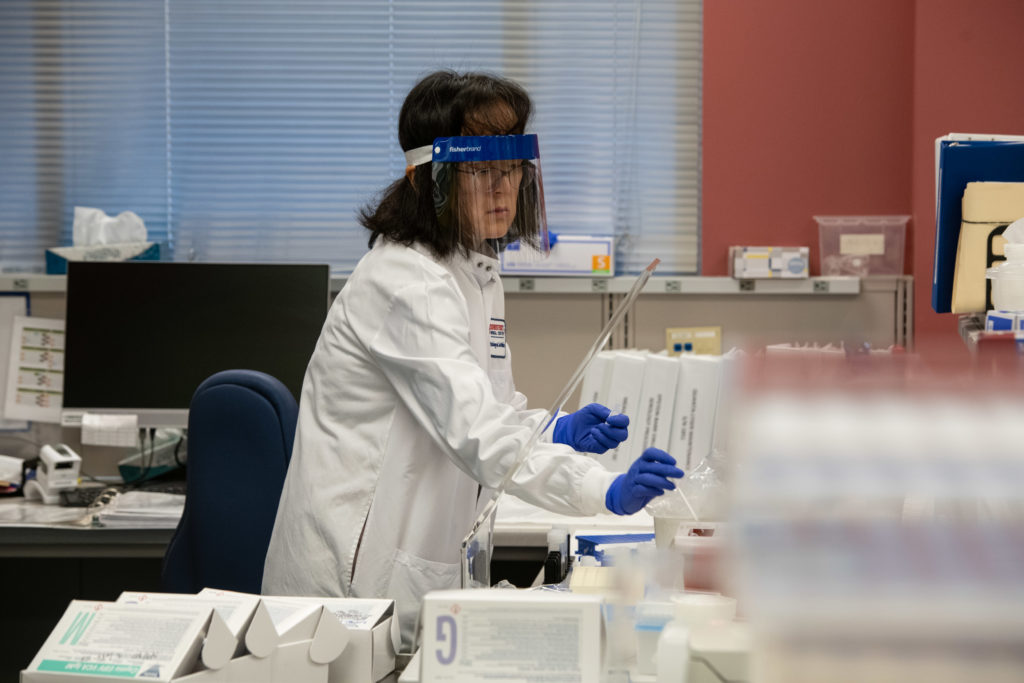
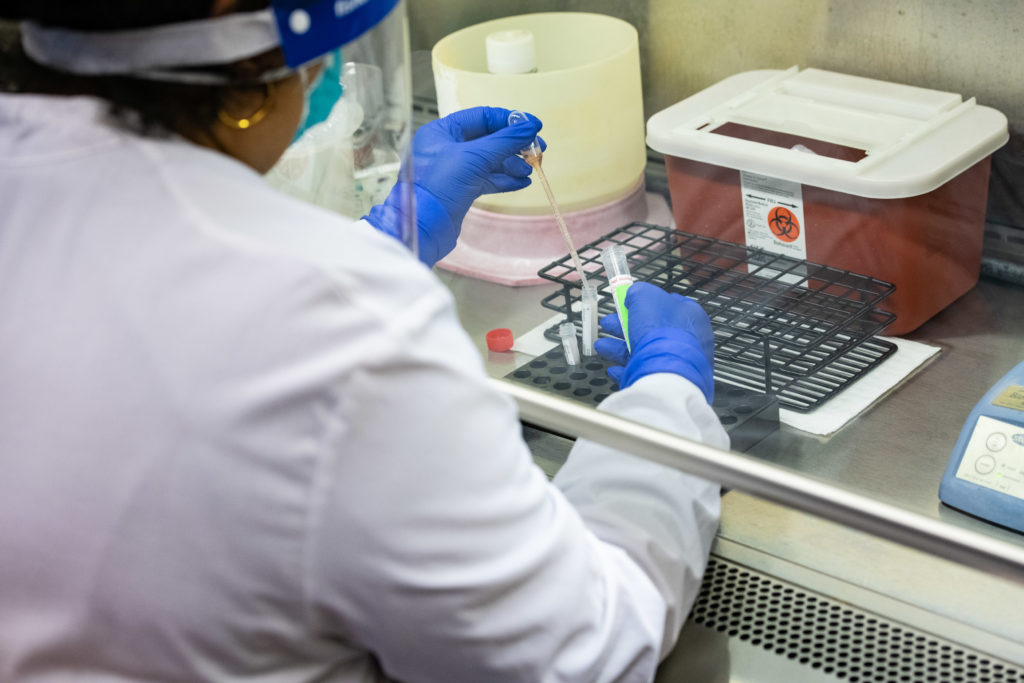
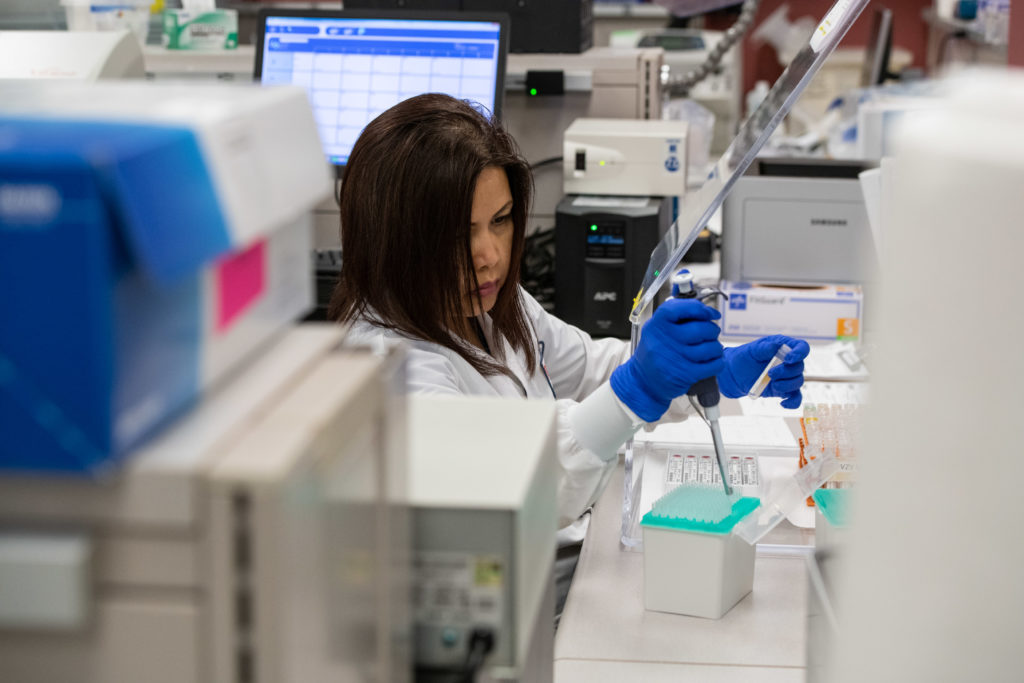
Pinsky's team in the clinical virology lab began working on the test in late January, concerned about the number of cases of the infection in China. They built on a technique developed at a laboratory in Germany that has studied the SARS and MERS coronaviruses for many years.
In addition to the testing services, Pinsky's lab will also provide support for a recently launched clinical trial to test the efficacy of an antiviral drug in treating people with the virus.
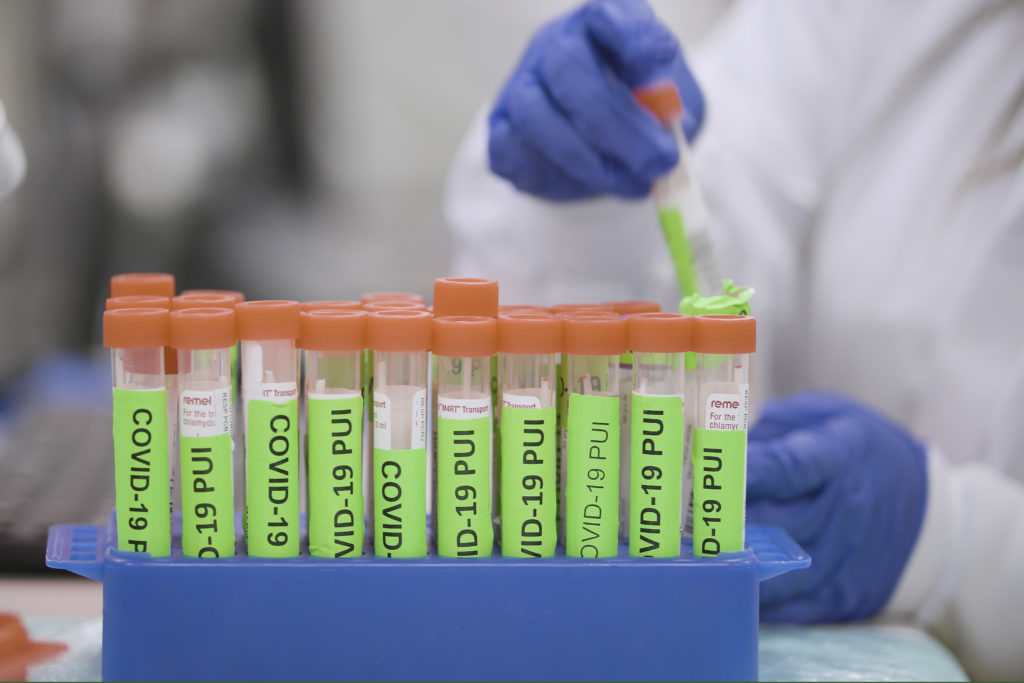
Up-to-date information on COVID-19 can be found on this Stanford Medicine information page.
Photo of Ben Pinksy and lab workers by Steve Fisch


